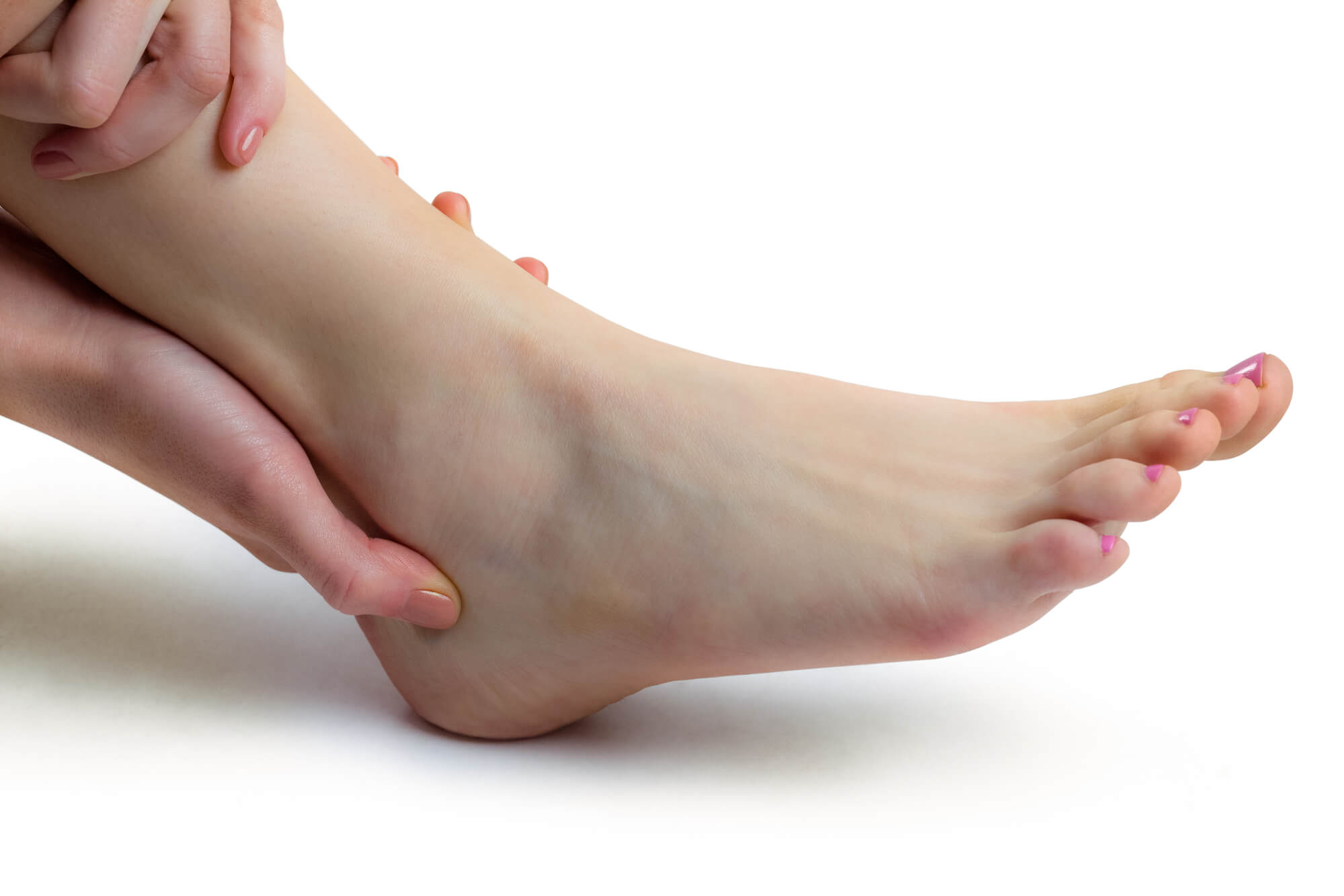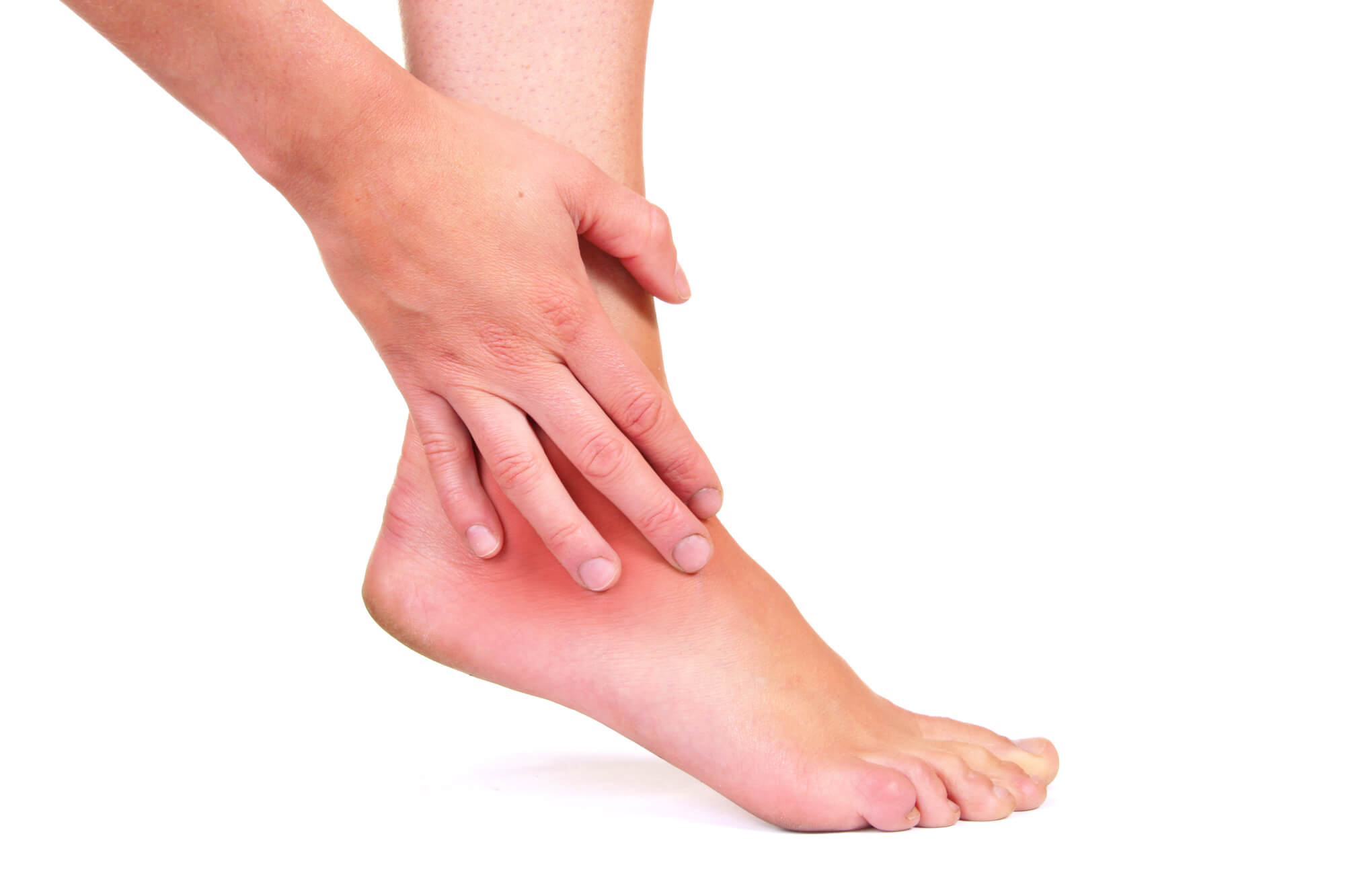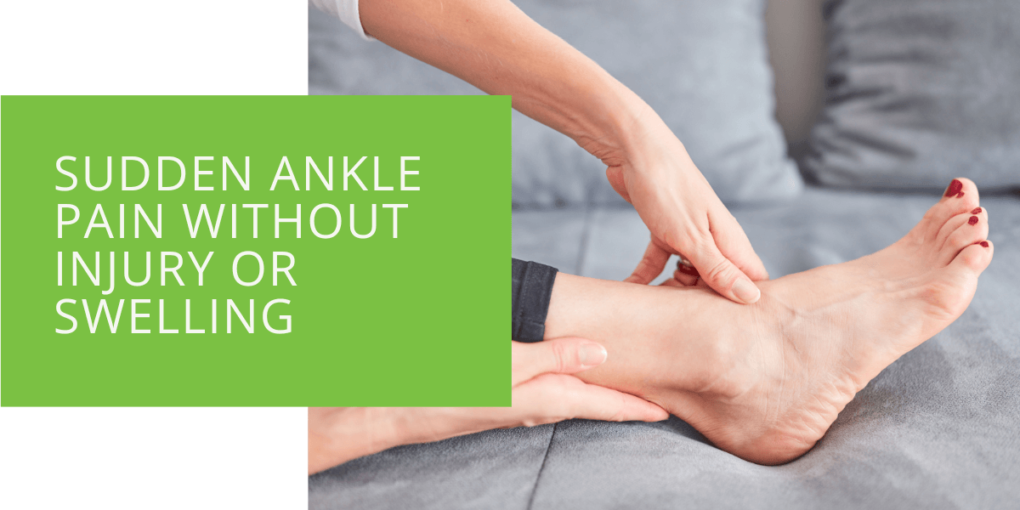Sudden Ankle Pain without Injury or Swelling: What It Could Mean
Sudden ankle pain without an apparent injury can be a cause for concern. It may seem like it came out of nowhere, and it can be difficult to pinpoint the exact cause. In this article, we will discuss the potential causes of sudden ankle pain and when it's important to seek medical attention from a podiatrist. We'll also cover the various treatment options available to help reduce pain and inflammation.
Possible Causes of Sudden Ankle Pain
Arthritis
Arthritis is a common cause of joint pain, and it can affect the ankle joint. Rheumatoid arthritis (RA) is an autoimmune disease that can cause swelling and inflammation in the ankle joint. The inflammation in the joint can damage the cartilage and bone, leading to pain and stiffness.
Osteoarthritis (OA) is another type of arthritis that can lead to ankle pain. It occurs when the cartilage in the ankle joint wears down over time, causing the bones to rub together. This can cause pain and stiffness in the ankle joint. Individuals with a previous ankle injury or flat feet may be at an increased risk for developing OA in the ankle joint.
Tendinitis
Tendinitis is inflammation of the tendon, which is a thick cord that connects muscle to bone. The Achilles tendon is the largest tendon in the body and is located at the back of the ankle. Tendinitis in the Achilles tendon can cause pain and stiffness in the ankle joint. Overuse or an injury can cause tendinitis.
Peroneal tendinitis is another type of tendinitis that can cause sudden ankle pain. It affects the peroneal tendons, which run behind the ankle bone on the foot's outer side. Peroneal tendinitis can be caused by overuse, improper footwear, or a sudden increase in physical activity.
Nerve Entrapment
Nerve entrapment occurs when a nerve is compressed or pinched. It can cause pain, numbness, and tingling in the affected area. The tibial and peroneal nerves are commonly affected in the ankle. An injury or a structural abnormality can cause nerve entrapment.
Tarsal tunnel syndrome is nerve entrapment that can cause sudden ankle pain. It occurs when the tibial nerve is compressed through the tarsal tunnel, a narrow space inside the ankle. Tarsal tunnel syndrome can cause pain, numbness, and tingling in the ankle and foot.
Gout
Gout is a type of arthritis that occurs when uric acid crystals accumulate in the joint. It typically affects the big toe but can also affect the ankle joint. Gout can cause sudden and severe pain, often waking you up in the middle of the night.
The accumulation of uric acid crystals in the ankle joint can cause inflammation and damage to the joint. Gout can be triggered by a diet high in purines found in red meat, seafood, and alcohol.

When to Seek Medical Attention
It's important to seek medical attention if you're experiencing sudden ankle pain without an apparent injury. Your podiatrist can perform a physical exam and order diagnostic tests, such as X-rays or an MRI, to determine the underlying cause of your pain. In some cases, prompt treatment can prevent further damage to the ankle joint.
Treatment Options for Sudden Ankle Pain
Nonsteroidal Anti-Inflammatory Drugs (NSAIDs)
NSAIDs, such as ibuprofen or naproxen, can help reduce pain and inflammation in the ankle joint. They work by blocking the production of prostaglandins, chemicals in the body that cause pain and inflammation.
Rest, Ice, Compression, and Elevation (RICE)
RICE is a common treatment for ankle injuries but can also be effective for sudden ankle pain without an injury. Resting the ankle and avoiding activities that cause pain can help reduce inflammation. Applying ice to the ankle for 20 minutes can also help reduce swelling and inflammation. Compression and elevation can help improve blood flow to the area, reducing pain and swelling.
Orthotics
Orthotics are shoe inserts that can help support the foot and ankle. They can be custom-made to fit your foot and help correct structural abnormalities contributing to your ankle pain. Orthotics can also help reduce pain and improve your overall foot and ankle function.
Surgery
Surgery may be necessary in some cases to repair damage to the ankle joint. For example, if you have a severe ankle sprain or damage to the Achilles tendon, surgery may be necessary to repair the damage and restore function to the ankle joint.

Other Steps to Reduce Pain and Inflammation in the Ankle Joint
In addition to the treatment options mentioned above, there are other steps you can take to help reduce pain and inflammation in the ankle joint.
Lifestyle Changes
For individuals with arthritis, maintaining a healthy weight, engaging in regular exercise, and wearing supportive footwear can all help reduce your risk of developing arthritis or exacerbating existing symptoms. Low-impact exercises like swimming or cycling can also help improve your overall foot and ankle function.
Anti-inflammatory Diet
Incorporating anti-inflammatory foods into your diet, such as turmeric and ginger, can help reduce inflammation. Eating a diet rich in fruits, vegetables, lean proteins, and healthy fats can help reduce inflammation and improve overall health.
Home Remedies
Simple home remedies can also help reduce pain and inflammation in the ankle joint. Elevating the affected ankle above heart level can help reduce swelling and inflammation. Applying a cold compress or ice pack to the affected area can also help reduce pain and inflammation.
Conclusion
Sudden ankle pain without injury or swelling can be a cause for concern, and it may be a sign of an underlying problem such as arthritis, tendinitis, or nerve entrapment. If you're experiencing sudden ankle pain without an apparent cause, it's important to seek medical attention from a podiatrist. Your podiatrist can help determine the underlying cause of your pain and provide you with a treatment plan that can help reduce pain and improve your overall foot and ankle function. By reducing your risk of developing arthritis, incorporating other lifestyle changes, and home remedies, you can help prevent sudden ankle pain from becoming a chronic issue.

